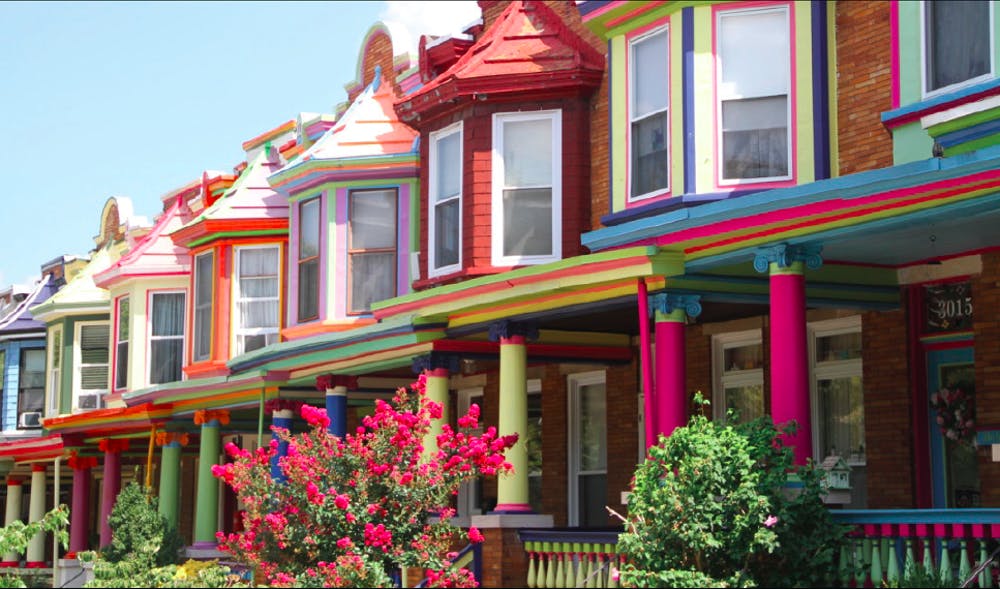During junior and senior year, most students choose to live in the neighborhoods surrounding Homewood Campus. Due to the fact that students are likely to only rent out a property for one to two years, this can sometimes lead to friction between long-time residents of those areas and the members of the student body.
Laura Urban, president of the Oakenshawe Improvement Association, stated that not only Hopkins students, but also University faculty and staff are an important part of her community. She noted, however, that there has often been tension between members of the neighborhood who might have very different lifestyles than those of students.
“It can get tiresome for neighbors, as a lot of them have been there for decades, and students, as you know, are kind of a revolving door,” Urban said. “You just get to know them, you just get them all trained, and then they move on and it’s a new crop. That cyclical nature is a reality of student life.”
She emphasized the importance of Hopkins students understanding the expectations that come with living in residential area versus living in dorms.
“It’s important for Hopkins students to be good neighbors,” Urban said. “There are people of all ages, all schedules, all walks of life around them. Being in row houses, we share walls, so we’re always interested in having students be aware of noise levels.”
Urban believes that noise from student parties is a specific source of conflict within the neighborhood. She pointed to an incident last week, when someone looking for a party bothered a neighbor late at night.
“We have issues all the time, mainly around parties. When a house has parties, sometimes it’s not even the people in the house, it’s the people coming to the house,” Urban said.
In an email to The News-Letter, Hana Hasan, manager of Off-Campus Housing, touched on problems that can arise between students and long-term residents.
“Students tend to keep a much later schedule during the week than a non-student neighbor and on occasion it can result in a complaint for noise,” Hasan wrote. “Another concern is the upkeep of a property. This can be a challenge due to the student not being clear if it’s their responsibility or that of the landlords.”
Senior Tim Kutcher lives with other members of the baseball team in a house near campus. His coach required all members on the team to introduce themselves to their neighbors after moving in.
“We’ve gone over and met all our direct neighbors,” he said.
Kutcher described the importance of connecting with his neighbors as a college student.
“We have an open dialogue with them. If we’re ever being too loud and they need us to be more quiet they’ll just text us,” Kutcher said. “I’d say we definitely get to interact with the neighbors a good bit and get to know each other just from living in a house right next to them.”
Senior Julia Chang lives in a house in a highly residential neighborhood. She also emphasized the importance of students getting to know their neighbors.
“We’re only in Baltimore for these next few years, so might as well get to know the place,” she said. “Though it definitely can be hard because there’s a culture surrounding Hopkins that’s different than someone who typically lives in Baltimore might experience.”
Urban stated that communication between students and other residents often helps reduce problems.
“Neighbors who have the most successful relationships with students are ones that try to meet the students,” she said. “When people can really get to know each other, that can help diffuse the tension.”
She also noted that issues may arise because for many students, it is their first time living in a residential neighborhood.
“Hopkins as an institution is very interested in helping its students be good residents of the neighborhood,” she said. “We recognize that many students aren’t used to living in either shared environments or close environments.”
Urban added that students’ potential failure to maintain their homes could lead to problems.
“There’s also a concern that, I mean, students are students, they’re not homeowners. They’re not interested in maintaining their house or repainting it or fixing the bathroom or any of that, so we always worry about how the actual house is getting decayed and how that might reduce property values,” she said.
However, Urban recognized that there are benefits of living near the Homewood Campus.
“Most of us are here not in spite of the University but because of the University. The University makes for interesting people and interesting events and a beautiful campus. There’s lots of benefits to being near a University,” she said. “Yes, there can be friction between students and non-students, but there’s also some strengths of living near a University.”
Hasan explained what happens in the case of a conflict between a student and neighbor.
“We look to mediate the situation with all parties involved,” she wrote.
Kirsch Jones, a member of the Charles Village Civic Association, released a statement from their board to The News-Letter which explains that they hope students continue to live in their community even after graduation.
“Charles Village residents and businesses welcome JHU students,” Jones wrote in an email to The News-Letter. “Furthermore, they hope that some JHU students decide to make this community a permanent home, as many JHU alumni have already chosen to do.”
Kutcher believes that Hopkins is positively engaged with its surrounding communities.
“I know one thing, just from talking with the neighbors, that people genuinely appreciate the security that we have because of Hopkins,” he said. “They get to reap those benefits as well.”
Kutcher said that even though he is a Maryland native, he feels more connected to Baltimore since coming to Hopkins.
“Hopkins definitely is in its own little bubble, it’s pretty isolated from the rest of Baltimore,” he said. “Baltimore is still like your home. I’ve definitely come to love the city.”





